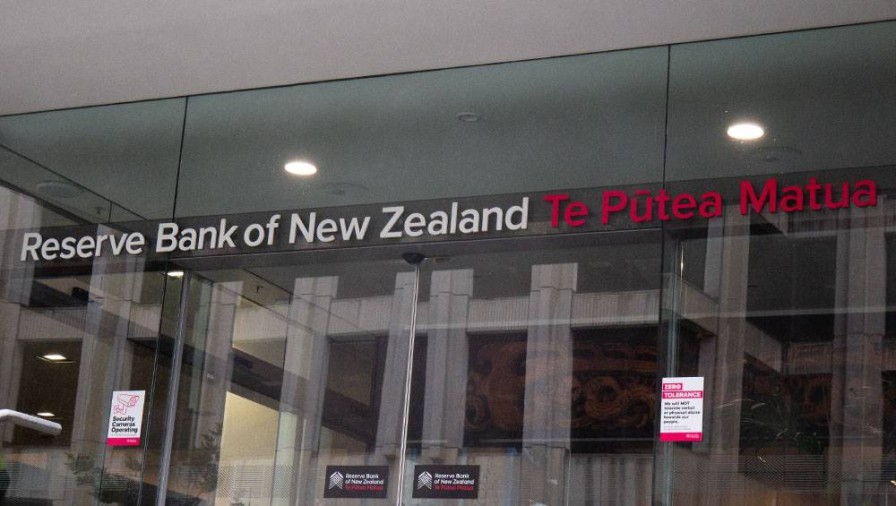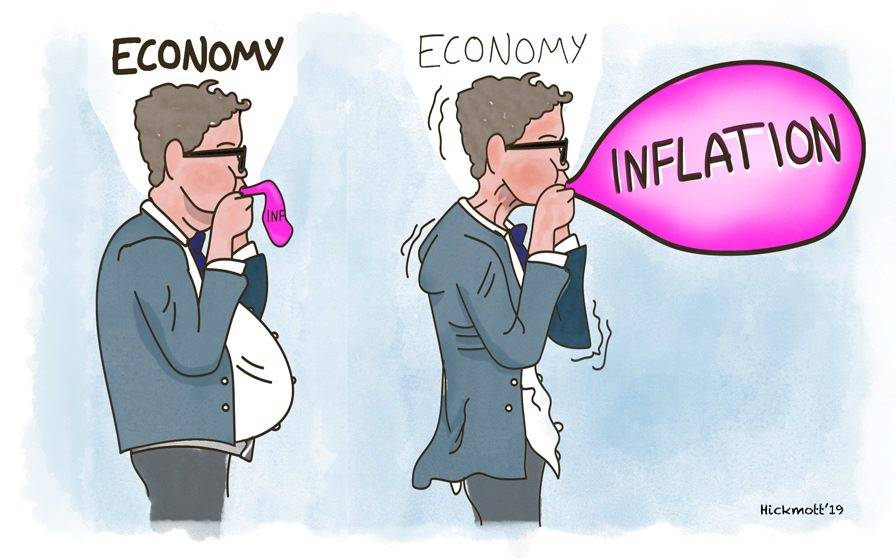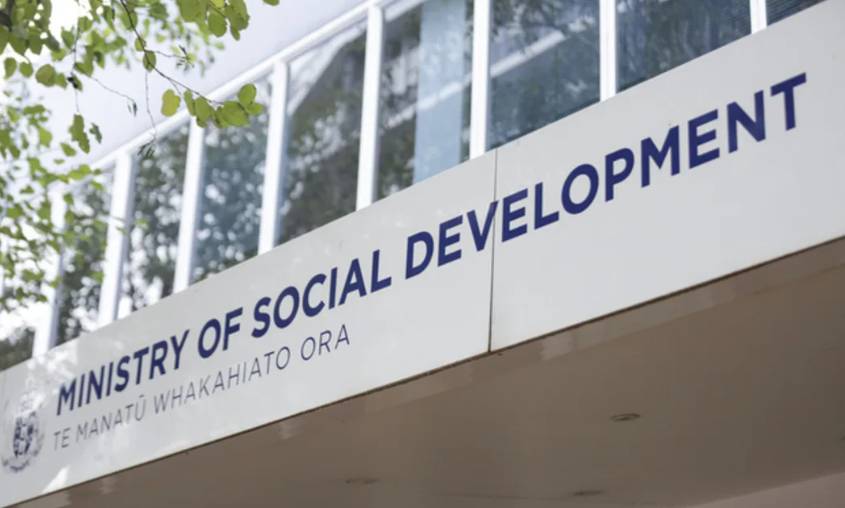

OCR cut, congestion charging, genetic modification ... more cuts
ANALYSIS: The Government is ending a nearly 30-year restriction on gene technology outside the lab.
WATCH: NBR political editor Brent Edwards speaks with Grant Walker.


ANALYSIS: The Government is ending a nearly 30-year restriction on gene technology outside the lab.
WATCH: NBR political editor Brent Edwards speaks with Grant Walker.
Just a few months after considering raising the official cash rate, the Reserve Bank surprised many economists, but not all, by cutting the OCR at its August meeting this week.
There is one good reason for the cut and that is that the economy has tanked and is in much worse shape than the bank thought in May.
Under its latest forecasts, it believes the economy shrunk in the three months to the end of June and is contracting in the September quarter as well. That will be New Zealand’s third technical recession in the space of two years.
It is not just numbers. Households are struggling – not just with the cost of living and high interest rates, but also with lack of jobs as the unemployment rate climbs, with the bank expecting it to peak at 5.4%.
Times are grim and NBR presenter Grant Walker wonders if this is New Zealand’s version of the United Kingdom’s winter of discontent, which he notes led to a change of government there when Margaret Thatcher led the Tories to victory in 1979.
Maybe, but New Zealand had its own winter of discontent in the first year of the Helen Clark-led Labour Government and that Government, in various forms, lasted for three terms.
Both Prime Minister Christopher Luxon and Finance Minister Nicola Willis were quick to pounce on the cut to the OCR as evidence of the success of the Government’s policies, particularly its fiscal policy and cuts to public spending.

The Reserve Bank cut the OCR this week.
But that too comes at a price, playing its part in driving up unemployment and dampening economic activity. That, of course, was the whole point of monetary and fiscal policy working together to drive down inflation.
As Reserve Bank Governor Adrian Orr says: “Inflation is no-one’s friend and we are getting rid of it. That has to be a good thing.”
Some people, though, have paid a higher price than others in achieving that aim.
But, with interest rates dropping and further cuts signaled, there is at least some good news on the horizon.
The Government will be hoping that, now inflation is tamed and interest rates are moving lower, that will inject life into the economy and people will start to feel more optimistic, particularly as they head into election year in 2026.

Now inflation is tamed there are expectations the economy will begin to grow, particularly next year. Illustration: Michael Hickmott.
Meanwhile, Transport Minister Simeon Brown announced he would introduce legislation to Parliament this year to pave the way for congestion charging. Auckland is likely to be first city to impose it, to get traffic moving.
Walker describes it as another tax on motorists and asks how that will help bring down costs.
Brown says congestion charging is not about raising more revenue, but what money is collected will be reinvested in the transport network in the city the money is raised.
Transporting New Zealand and Infrastructure New Zealand support the proposal.
But Infrastructure New Zealand’s chief executive Nick Leggett says congestion charging has to be considered as part of a broader upgrade of the transport system.
“The development and availability of reliable alternatives are necessary to ensure people have a choice of transport modes and are particularly important for low-income communities,” Leggett says.
Walker agrees and says people dependent on “rubbish public transport systems” will absolutely hate paying the charge.
Overseas experience suggests people are initially opposed to congestion charging but soon accept it as it does help moderate traffic flows.
If legislation is introduced this year, and presumably passed into law next, it is possible a congestion charge could be imposed in Auckland in election year. Either way, the Government must surely be considering the politics of the proposal and how it will be promoted in the run-up to the election.

Congestion charging could alleviate this sort of traffic gridlock.
This week, Prime Minister Christopher Luxon and Science, Innovation, and Technology Minister Judith Collins announced legislation would be introduced to end a long-running ban on genetic modification outside the lab.
“We’re ending a nearly 30-year restriction on gene technology outside the lab in a very carefully considered and tightly controlled move, which will bring enormous health productivity and climate benefits to New Zealanders,” Collins says.
But some worry it will undermine New Zealand’s primary exports and the premium they get in foreign markets for being GE-free.
In other announcements during the week, the Government substantially cut the responsibilities of Te Arawhiti, which has been responsible for Māori Crown relations, and the Ministry of Disabled People.

Science, Innovation and Technology Minister Judith Collins.
In the case of Te Arawhiti, it will continue its core role of progressing Treaty of Waitangi settlements and Takutai Moana applications but will have its broader role of Māori Crown relations removed.
The move has been roundly condemned by Opposition parties and the Public Service Association says the decision marks another “disappointing attack on the place of Māori in Aotearoa”.
Te Arawhiti was established in 2018 by the former Labour coalition Government, with the aim of fostering Māori Crown relations.
The PSA’s Janice Panoho asks why the Government would risk undermining the good work the agency has done.
“The splitting off of functions means Te Arawhiti will lose the connection it had with the teams getting the settlements agreed and the context behind them. How is that efficient?” Panoho asks.
In the case of of the Ministry of Disabled People, it has had responsibility for delivering disability support services taken off it after a critical review of how it administered the system. That responsibility will be passed on to the Ministry of Social Development.
Social Development Minister Louise Upston says the review found the ministry’s financial controls were poor and its monitoring of spending inadequate.
But Upston says this is not about cutting funding, with the Government having provided a record $1.1 billion boost to disability services in this year’s Budget.
Opposition parties have again criticised the move, with the Green Party calling it a major setback for disabled people.

MSD is taking over responsibility for delivering disability support services.
The tourism sector is another group unhappy after the Government announced late last week it was raising visitor visa costs by 61% to $341 from this October.
Walker asks why tourists would want to come here.
But Immigration New Zealand points out that, even with the increase, most international visitors will not pay because they come from countries that do not require visas.
Parliament resumes sitting next week after the recess and MPs will have plenty to discuss after a week of government announcements, some more contentious than others.
Brent Edwards is NBR’s political editor.